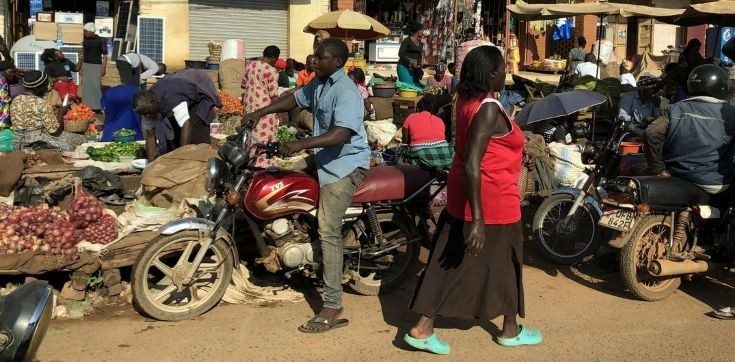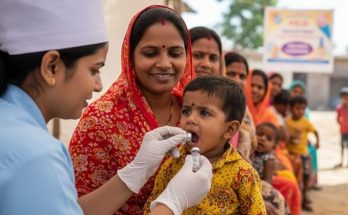#Ebola#EbolaOutbreak#Sudan#EbolaVaccination
In a global first, Uganda’s Ministry of Health, the World Health Organization (WHO) and other partners on Monday launched a first-ever vaccine trial for Ebola from the Sudan species of the virus.
The principal investigators from Makerere University and the Uganda Virus Research Institute (UVRI), with support from WHO and other partners, have worked tirelessly to get the trial ready in 4 days since the outbreak was confirmed on 30 January.
It is the first trial to assess the clinical efficacy of a vaccine against Ebola disease due to Sudan virus.
The speed was achieved through advanced research preparedness while ensuring full compliance with national and international regulatory and ethical requirements.
The candidate vaccine was donated by IAVI, with financial support from WHO, the Coalition for Epidemic Preparedness Innovations (CEPI), Canada’s International Development Research Centre (IDRC), and the European Commission’s Health Emergency Preparedness and Response Authority (HERA) and support from the Africa Centres for Disease Control and Prevention (Africa CDC).
“This is a critical achievement towards better pandemic preparedness, and saving lives when outbreaks occur,” said Dr Tedros Adhanom Ghebreyesus, WHO’s Director-General.
He said, “This is possible because of the dedication of Uganda’s health workers, the involvement of communities, the Ministry of Health of Uganda, Makerere University and UVRI, and research efforts led by WHO involving hundreds of scientists through our research and development Filoviruses network. We thank our partners for their dedication and cooperation, from IAVI for donating the vaccine, to CEPI, EU HERA and Canada’s IDRC for funding, and Africa CDC for further support. This massive achievement would simply not be possible without them.”
In 2022, during the previous outbreak of Ebola disease (also from the Sudan species of the virus) in Uganda, a randomized protocol for candidate vaccines was developed.
Principal investigators were designated under the leadership of the Minister of Health, and teams were trained to allow such a trial to take place during an active outbreak.
The randomized vaccine trial to assess the recombinant vesicular stomatitis virus (rVSV) candidate vaccine was launched at a ceremony in Kampala today by the Minister of Health of Uganda.
WHO is co-sponsoring the trial. WHO was represented by Dr Mike Ryan, Executive Director of WHO’s Health Emergencies Programme and Deputy Director-General, and the WHO representative to Uganda Dr Kasonde Mwinga, along with other colleagues.
Three vaccination rings were defined today. The first ring involves about 40 contacts and contacts of contacts of the first reported and confirmed case, a health worker who has died.
Although several promising candidate medical countermeasures are progressing through clinical development, as of now, there is no licensed vaccine available to effectively combat a potential future outbreak of Ebola disease from the Sudan species of the virus.
Licensed vaccines exist only for the disease caused by Ebola virus, formerly known as Zaïre ebolavirus.
Likewise for treatments, approved treatments are only available for Ebola virus.
The vaccine for the trial was recommended by the independent WHO candidate vaccine prioritization working group. If the candidate vaccine is effective, it can contribute to controlling this outbreak and generate data for vaccine licensure.
“In 2022, the research teams were trained in good clinical practice (GCP) and standard operating procedures for such trials,” WHO said in a statement.
They completed refresher training in recent days.
WHO said its members experienced in trials and in ring vaccination arrived in Uganda over the weekend to support the trial implementation and GCP compliance.





